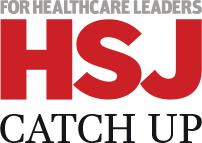HSJ’s expert briefing on NHS finances, savings and efforts to get the health service back in the black. Contact me in confidence here.
STF distortion
As more trusts give up on their financial plans, a huge pile of cash is mounting up to reward those that can stay on track.
Under the control total system currently governing NHS finances, trusts that miss their financial plan have their allocations from the £1.8bn sustainability and transformation fund dished out to providers that do meet their targets.
In 2016-17, this created huge disparity between those that received bonus STF payments, and those that got nothing.
But with the overall deficit getting worse in 2017-18, the distortive impact looks set to be even greater.
According to the latest forecasts, there will be £780m of uncommitted STF at the end of the year (which is likely to increase – see below), compared to £420m at this stage last year.
Under the bonus pot rules, this cash will be divvied up between trusts that hit their control totals, on top of the money received from their original STF allocations. Around two-thirds of trusts are likely to benefit.
As we saw last year, there will also be a handful of providers able to trigger huge bonus payments with one-off income or balance sheet adjustments before the accounts are closed.
Manchester looks like it will be one of the main beneficiaries again this year, with The Christie Foundation Trust forecasting to better its plan by £27m and trigger a matching bonus.
The trust doesn’t have any land sales in the pipeline, so this probably has something to do with an estimated insurance settlement following last April’s fire.
The trust will incur additional costs to replace the cancer research facility but the extra STF cash would essentially be free money.
This obviously works out very nicely for The Christie, but should raise further questions for NHS Improvement about the equity and fairness of the STF regime, which is supposed to reward genuine efficiency savings.
Cash pile growing
Looking at the monthly run rates of trusts still forecast to meet their control total, the pile of bonus cash is likely to grow larger still.
By month nine, more than 60 providers had reported an actual year to date deficit that was larger than the forecast outturn, with some likely to make massive revisions to their forecast.
Barts Health Trust was still officially forecasting a pre-STF deficit of £85m, but was £122m in the red by the end of December, while Barking, Havering and Redbridge Hospitals Trust has not published a revised forecast but was £46m off plan after nine months.
The numbers also look precarious for University Hospitals of North Midlands Trust and Wirral University Teaching Hospital FT.
Meet half way
With more trusts falling off plan this year, there will be fewer able to cope with the ratcheting up of control totals in 2018-19.
Several finance directors have flagged this up in recent weeks. They feel they’ll have no option but to reject their target and lose out on their STF.
If enough trusts refuse their control totals, NHSI will have to be pragmatic and start offering “meet me half way” deals.
Treasury top up
The Treasury has topped up the Department of Health and Social Care’s revenue budget by around £600m for 2017-18, ostensibly to cover expected increases in clinical negligence premiums and spending on reciprocal healthcare arrangements with European countries.
If the expected costs do not materialise, this will provide some handy headroom when it comes to publishing the accounts in July. The DHSC does not seem to like answering questions about finance, and did not address our questions about the actual increase in costs so far this year.
Richard Murray, policy director at the King’s Fund, said: “For the Treasury to provide another top up so late in the day – and yet so recently as they provided another one in the November budget – suggests they fear the department has no room to absorb any new cost pressures.”

Topics
- BARKING, HAVERING AND REDBRIDGE UNIVERSITY HOSPITALS NHS TRUST
- BARTS HEALTH TRUST
- Department of Health and Social Care (DHSC)
- Finance
- Government/DH policy
- King's Fund
- NHS Improvement
- Regulation/inspection
- Sustainability
- Targets
- The Christie NHS Foundation Trust
- UNIVERSITY HOSPITALS OF NORTH MIDLANDS NHS TRUST
- WIRRAL UNIVERSITY HOSPITAL NHS TRUST































15 Readers' comments